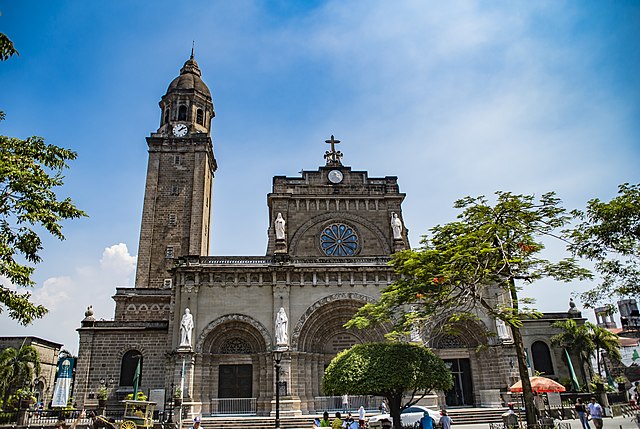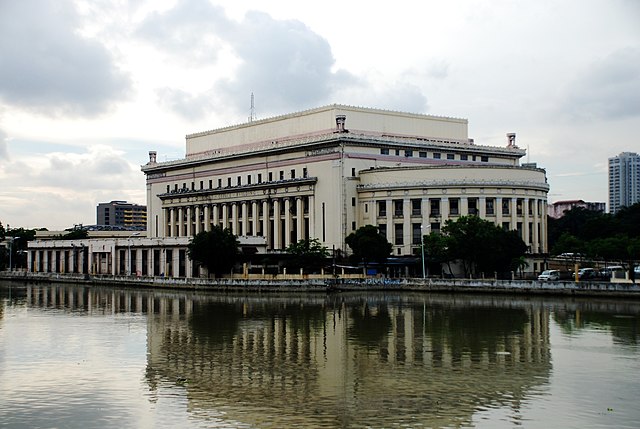
Through the generosity of the late Professor Benedict Anderson and Ajarn Charnvit Kasetsiri, the Thammasat University Library has newly acquired some important books of interest for students of Association of Southeast Asian Nations (ASEAN) studies, political science, literature, and related fields.
They are part of a special bequest of over 2800 books from the personal scholarly library of Professor Benedict Anderson at Cornell University, in addition to the previous donation of books from the library of Professor Anderson at his home in Bangkok. These newly available items will be on the TU Library shelves for the benefit of our students and ajarns. They are shelved in the Charnvit Kasetsiri Room of the Pridi Banomyong Library, Tha Prachan campus.
Among them is a newly acquired book, Manila, My Manila, by Nicomedes Márquez Joaquín, known as Nick Joaquin (1917– 2004). A Filipino writer and journalist, Joaquin was best known for his short stories and novels in the English language. The TU Library owns several books by Nick Joaquin.
Unlike other significant Filipino writers, such as José Rizal and Claro M. Recto, whose books are also in the TU Library collection, Joaquin wrote directly in English, although Spanish was his native language.
In a recent study, Assistant Professor Hidde van der Wall, PhD, who teaches in the Department of Fine Arts, Ateneo de Manila University, Quezon City, Philippines, wrote an analysis of Nick Joaquin’s Manila, My Manila.
It was published in the 2019/2020 number of Kritika Kultura, a semi-annual peer-reviewed international electronic journal of literary, language and cultural studies of the Department of English of the Ateneo de Manila University, Philippines. Kritika Kultura (KK) is described as a pioneering academic electronic journal in the Philippines and the only academic e-journal of its kind in the Philippines today. The abstract of Assistant Professor van der Wall’s work is as follows:
This article discusses Nick Joaquin’s Manila, My Manila (1989/1999) as an example of how his historiographical work tends to be more conventional in terms of the nationalism that dominates Philippine historiography, and has a more complex relationship to this discourse than existing analyses tend to suggest. While his veneration of the Spanish colonial period is indeed unconventional, his book leaves the main problem of nationalist discourse untouched as it maintains the essentialist notion of an identifiable national community projected backwards into time. The book fails to capitalize on the potential for disrupting national paradigms that city narratives offer. Rather than breaking up narratives of nationalism, it creates a new one, homogenizing Philippine history around a linear history of the city. It imagines Manila as the continuously endangered seed of the nation, which miraculously overcomes the multitude of threats thrown its way. While the narrative glosses over the inherent diversity of the nation, it also exposes an essentialist, teleological, and metaphysical historical vision. The ambiguity of Joaquin’s vision, and of his relationship with the tradition of Philippine historiography, then, lies in his outward rejection of the essentialism inherent to nationalist notions on the one hand, and the determinism governing his homogenizing narratives on the other.
A history of the city of Manila, Joaquin’s book was published in an edition for general readers in 1999, a decade after it first appeared as a volume intended for local schoolchildren, to encourage knowledge of, and affection for, the city. It promoted awareness of the history of a place, as Assistant Professor van der Wall explains:
The book presents a narrative that puts the city at the center of an idealized national history. This article analyzes that narrative in its complex relationship to the tradition of Philippine nationalist historiography. While the continuities of Manila, My Manila to Joaquin’s previous works on Philippine history are strong, especially in his rather unconventional veneration of the Spanish colonial period, the work’s conventional narrative structure contrasts with some of Joaquin’s fiction and nonfiction about the city…Faced with the troubles of his postcolonial and post-authoritarian present, Joaquin’s history of Manila remains apolitical…Joaquin’s exaltation of Manila’s colonial legacy creates a mix of fixation on the nation’s origins, appreciation of the colonial period and its importance to that nation, and nostalgic longing for an idealized past. The idealized colonial Manila supposedly birthed the nation he constructs, and which becomes identical with the former and emanates from there. He homogenizes the heterogenous nation around the city that he nostalgically remembers and imagines as continuously beleaguered while metaphysical forces keeping the city alive and on its destined path of forming the Philippine nation. This imaginary shows how his ostensibly materialist concept of history is only knee-deep and superseded by a metaphysical, teleological, and essentialist one. While Joaquin’s praise for the colonial period challenges Philippine nationalist historiography in some important respects, and his book contains some clear ironic provocations, like the heroization of colonizers, these differences are less fundamental than the shared postulation of an essential, homogenous, and knowable nation… In line with Joaquin’s aim to convince young Manileños (and later a more general audience) of the importance of their city’s history, the book becomes a nationalist history centered on the city.

In addition to discovering an original interpretation of the history a city, readers of Manila, My Manila also have the opportunity to discover much about its author. As a magazine profile mentioned in 2019,
At age 10, Joaquin read classics authors such as Charles Dickens, Anton Chekhov, F. Scott Fitzgerald, and Ernest Hemingway.
Books by and about these influential writers are in the TU Library collection.
The article continues:
Joaquin is the Philippine’s most important writer of Philippine literature in English. His work spans almost 70 years. Today, he is immortalized in the hundreds of articles he produced. He has more than 60 book titles to his name, and is remembered in schools all over the country with classics such as May Day Eve and The Summer Solstice. Joaquin died in April 2004 at 86 years old, still writing, refusing to retire, and always compassionate and optimistic about his countrymen. His opus, no matter which milieu they were written, always have positive thoughts about Filipinos (his best works were produced during the war). His true legacy lies not in the volume or richness or brilliance of his works, but in the optimism [about] the Filipino.

(All images courtesy of Wikimedia Commons)

